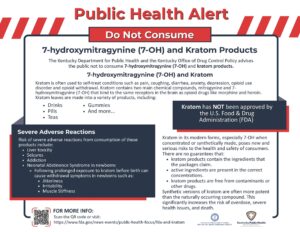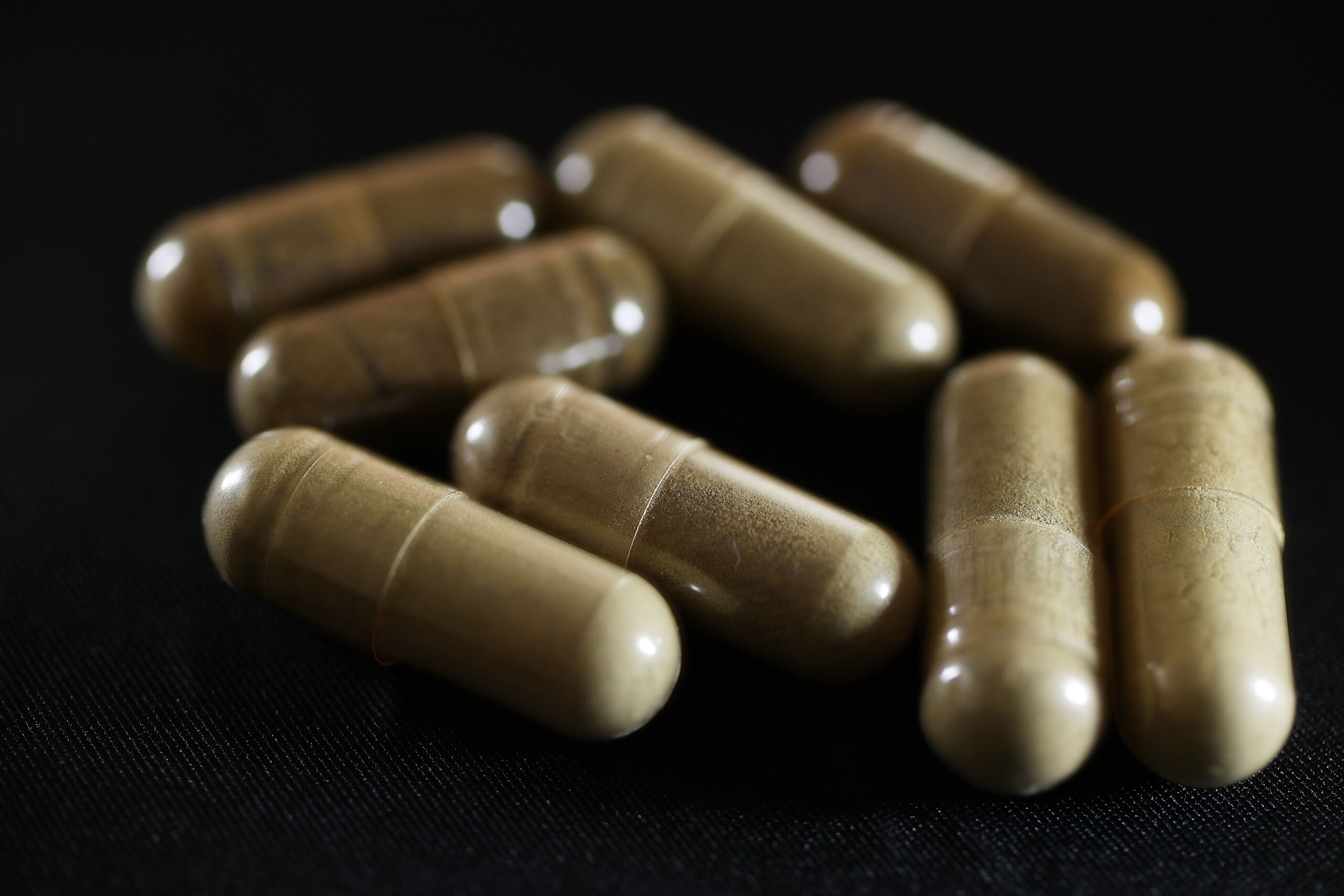Walk into a gas station or vape shop and you may see small bottles, powders, or gummies labeled Kratom. Sometimes it’s advertised as a natural fix for pain, anxiety, or opioid withdrawal. Some even call it “Gas Station Heroin.”
It’s legal. It’s easy to buy. And it’s far from safe.
“It’s a plant — but that doesn’t mean it’s safe,” warns BrightView Health State Medical Director Dr. Gilbert Schmidt. “Kratom acts on the same brain receptors as heroin and fentanyl. It can cause dependence, dangerous withdrawal, and even delay people from getting effective treatment.”
Public Health Officials Are Sounding the Alarm
The Kentucky Department for Public Health and the Kentucky Office of Drug Control Policy recently issued a Public Health Alert urging people not to consume kratom or its concentrated form, 7-hydroxymitragynine (7-OH).
These compounds bind to the same opioid receptors in the brain as morphine and heroin. State officials warn that modern, synthetic, or concentrated versions — especially those labeled 7-OH — can cause:
-
Liver toxicity
-
Seizures
-
Addiction and withdrawal
-
Neonatal Abstinence Syndrome in newborns exposed during pregnancy
-
Jitteriness, irritability, and muscle stiffness in infants
The alert also warns that there is no guarantee these products contain what the label claims — or that they’re free from contamination or other drugs. Synthetic versions are often far more potent than natural leaves, increasing the risk of overdose, severe health complications, and death.
And importantly: Kratom has NOT been approved by the U.S. Food & Drug Administration (FDA).

State health officials in Kentucky issued a public health alert about kratom and 7-hydroxymitragynine (7-OH). The advisory warns that these unregulated products can cause liver damage, seizures, addiction, and withdrawal in newborns, and have not been approved by the FDA. Synthetic or concentrated forms may increase overdose risk and contain unknown or contaminated ingredients.
Three Things You Should Know About Kratom
1. Dangerous & Addictive
Kratom is marketed as a natural alternative to opioids — but it acts on the same receptors as heroin and fentanyl. Regular use can quickly lead to dependence, cravings, and withdrawal (anxiety, muscle aches, insomnia).
2. Unregulated & Risky
Unlike medications that undergo safety testing, Kratom products are unregulated and unpredictable. Lab tests have found heavy metals, salmonella, and even fentanyl. The DEA classifies Kratom as a “Drug and Chemical of Concern.”
3. Unsafe for Withdrawal Management
Some people use Kratom hoping to ease opioid withdrawal, but there’s no evidence it helps recovery safely. It can delay access to proven options like Medication for Addiction Treatment (MAT), counseling, and support programs — and may complicate starting buprenorphine due to the risk of precipitated withdrawal.
What BrightView Experts Are Seeing
Dr. Schmidt warns that Kratom complicates treatment:
“Patients need to be in severe withdrawal before starting buprenorphine if they’ve been using Kratom, to avoid precipitated withdrawal. It’s challenging — but with medical support, it’s manageable. The key is getting people into safe, evidence-based care.”
BrightView outreach teams report heavy Kratom marketing in vape shops across states like Kentucky, North Carolina, and Ohio — where patients are often introduced to the drug believing it’s harmless.
Bottom Line
Kratom’s legal status does not mean it’s safe. It’s an opioid-like drug sold without oversight, sometimes contaminated with dangerous substances, and capable of causing addiction, severe withdrawal, liver injury, and other health crises.
If you or someone you know is using Kratom — especially to cope with pain, anxiety, or opioid withdrawal — it’s important to seek medical help rather than self-managing.
BrightView Health provides comprehensive, outpatient addiction treatment — including medical support, counseling, and recovery planning — to help patients safely stop using and build long-term recovery.
Call 833.510.HELP (4357) or find a BrightView center near you »
